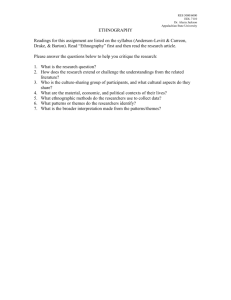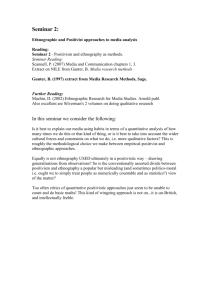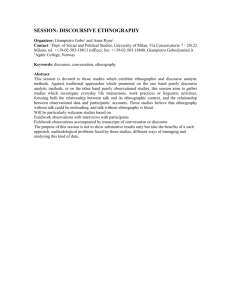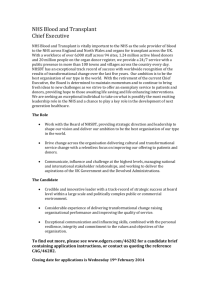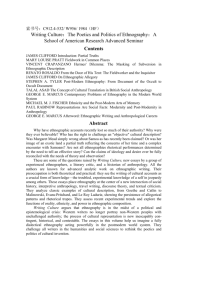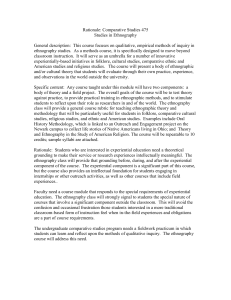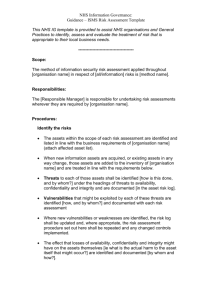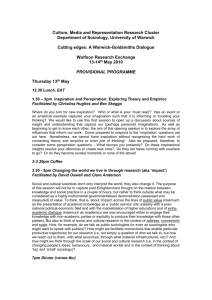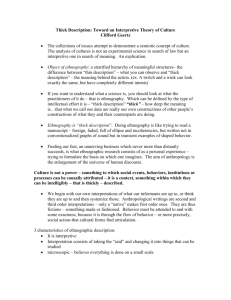Interfaces between ethnography
advertisement
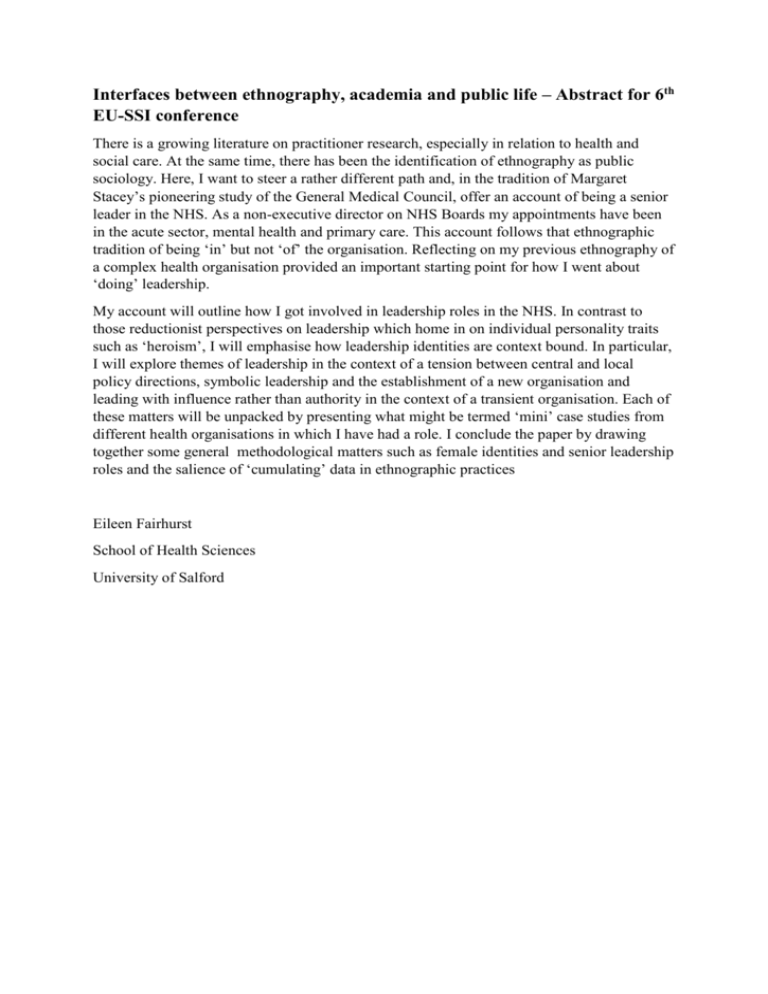
Interfaces between ethnography, academia and public life – Abstract for 6th EU-SSI conference There is a growing literature on practitioner research, especially in relation to health and social care. At the same time, there has been the identification of ethnography as public sociology. Here, I want to steer a rather different path and, in the tradition of Margaret Stacey’s pioneering study of the General Medical Council, offer an account of being a senior leader in the NHS. As a non-executive director on NHS Boards my appointments have been in the acute sector, mental health and primary care. This account follows that ethnographic tradition of being ‘in’ but not ‘of’ the organisation. Reflecting on my previous ethnography of a complex health organisation provided an important starting point for how I went about ‘doing’ leadership. My account will outline how I got involved in leadership roles in the NHS. In contrast to those reductionist perspectives on leadership which home in on individual personality traits such as ‘heroism’, I will emphasise how leadership identities are context bound. In particular, I will explore themes of leadership in the context of a tension between central and local policy directions, symbolic leadership and the establishment of a new organisation and leading with influence rather than authority in the context of a transient organisation. Each of these matters will be unpacked by presenting what might be termed ‘mini’ case studies from different health organisations in which I have had a role. I conclude the paper by drawing together some general methodological matters such as female identities and senior leadership roles and the salience of ‘cumulating’ data in ethnographic practices Eileen Fairhurst School of Health Sciences University of Salford
